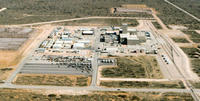-
Server outages continue to hobble immigration courts’ work
The servers of the U.S. Executive Office for Immigration Review (EOIR)support the fifty-nine immigration courts administered by the EOIR,the electronic registry for accredited immigration attorneys and representatives, and the 260-plus immigration court judges and staff. For the last six weeks, these servers have suffered from severe outages, hobbling the work of the immigration courts. During the six week period, about 366,724 cases were pending, butcourt clerks were unable to access court records, enter new records in the system, and make digital recordings of hearings.
-
-
A bill offers a military path to citizenship for Dreamers

The Enlist Act,authored by Representative Jeff Denham (R-California) would allow immigrants who were brought to the United States illegally before 2012 and below the age of fifteen at the time (Dreamers) to enlist in the military, earning them permanent legal status, and upon honorable discharge, eligibility for U.S. citizenship. Denham and his co-sponsors tried to get the proposal though the National Defense Authorization Act(NDAA), a bill likely to pass, but House leaders rejected the idea.
-
-
DHS HQ: Doubts grow about trouble-plagued St. Elizabeths complex

DHS was supposed to move into its new, centralized headquarters on the grounds of the historic St. Elizabeths, in 2015, at a cost estimated to be about $3 billion. Today the project is $1.5 billion over budget, eleven years behind schedule, with thousands of DHS employees working at more than fifty scattered, expensively leased office buildings. Some lawmakers doubt whether the complex will ever be completed. A congressional aide familiar with sentiments on the Hill says: “It’s [the original St. Elizabeths complex plan] just not going to happen. The money doesn’t exist.”
-
-
Public-private partnership proposed to fund Calif. seismic early warning system
California state agencies federal agencies, are proposing a partnership between public and private agencies to build the $23.1 million earthquake early warning system in the state, and fund the $11.4 million annual operating budget. Governor Jerry Brown signed Senate Bill 135 in 2013 authorizing construction of the warning system, but the bill does not provide or allocate funding, despite a plan to have the system active in two years. The early warning system will provide Los Angeles residents up to a minute’s notice if a large earthquake is generated on the San Andreas Fault in the Salton Sea area. The system could also provide warnings for earthquakes that occur throughout California’s earthquake-prone landscape.
-
-
Drone surveillance raises legal, ethical concerns

The use of drones for domestic security purposes, surveillance of citizens, and putative criminals and organizations raises many legal and ethical concerns particularly with regard to the Fourth Amendment to the U.S. Constitution, Council of Europe instruments, and the EU Data Protection Framework. Experts suggest that the rise of drones for surveillance and other applications highlights particular challenges to civil liberties and tensions between these and national security and justice concerns.
-
-
Former DHS secretary: DHS has lost its way
Former DHS secretary Tom Ridge recently said that, “[DHS has] kind of lost [its] way…The focus – the primary focus – has been substantially diminished.” Others echo Ridge’s concern, noting that the department, the budget of which has more than doubled since its inception, from $29 billion in 2003 to $61 billion next year, has been suffering from mission creep.
-
-
U.S. officials: Nigerian military too corrupt, inept to defeat Islamists, rescue girls

U.S. officials have been unusually frank – and unusually public — in their assessment of the competence and effectiveness of the Nigerian military. The officials presented their analysis last Thursday, when they were questioned by lawmakers about whether the Nigerian military was capable of rescuing – or even locating – the more than 260 girls abducted by Boko Haram last month. U.S. military and intelligence officials said that even with international help, the Nigerian military was too corrupt and too incompetent to play a meaningful role in rescuing the girls. “We’re now looking at a military force that’s, quite frankly, becoming afraid to even engage,” Alice Friend, the Pentagon’s principal director for African affairs, said of the Nigerian military. “The Nigerian military has the same challenges with corruption that every other institution in Nigeria does. Much of the funding that goes to the Nigerian military is skimmed off the top, if you will.” There is another obstacle to U.S. military help to Nigeria: Friend told lawmakers that finding Nigerian army units which have not been involved in gross violations of human rights has been a “persistent and very troubling limitation” on American efforts to work with the Nigerian military.
-
-
Snowden revelations spur a surge in encrypted e-mail services
The Edward Snowden revelations about National Security Agency(N.S.A) surveillance programs have fueled a surge of new e-mail encryption services. “A lot of people were upset with those revelations, and that coalesced into this effort,” said the co-developer of a new encrypted e-mail service which launched last Friday. The company notes that its servers are based in Switzerland, making it more difficult for U.S. law enforcement to reach them.
-
-
Hitting the reset button on Secure Communities
Last Tuesday law enforcement officials said they anticipate a “reboot” of the controversial immigration enforcement program, Secure Communities, in which police officers are asked to submit fingerprints taken by police to DHS so the individuals stopped by the police can be screened for deportation eligibility. Critics argue the program leads to too many low-level criminals and non-criminals being turned over to immigration authorities, and in addition to the cost involved in the process, the program could make witnesses and victims of crime reluctant to cooperate with law enforcement.
-
-
Critics say $265 billion transportation bill insufficient
Transportation advocates criticize the lack of an increase in funding in the Senate’s $265 billion surface transportation bill recently unveiled. Senate leaders said the bill would replace the current transportation funding measure and maintain current funding levels, adjusted for inflation, for the next six years. The proposed bill includes $44 billion annually for road and transit projects, based on a Congressional Budget Office(CBO) estimate of how much funding will be needed to maintain current federal transit programs. The CBC has projected that Department of Transportation’s Highway Trust Fund will run out of money by August 2014 without congressional action.
-
-
Bill would encourage development of drugs to treat antibiotic-resistant bacteria
The U.S. Centers for Disease Control and Prevention(CDC) reported that two million Americans are infected by antibiotic-resistant pathogens every year, and the pathogens cause 23,000 deaths annually. In 1990, about twenty pharmaceutical companies had large antibiotic research and development programs, but today only three large firms and a few small companies are investing in antibiotic research. A new proposed bill, the Developing an Innovative Strategy for Antimicrobial Resistant Microorganisms Act, would encourage pharmaceutical companies to develop new drugs to treat antibiotic-resistant bacteria.
-
-
New Mexico demands clarifications, reassurances on WIPP radiation leaks

New Mexico’s environment secretary Ryan Flynn has ordered the Department of Energy (DOE) to explain how it will protect public health and the environment while it investigates a radiation leak at the underground Waste Isolation Pilot Plant (WIPP). The plant has not been in compliance with various permit requirements since the February underground fire and radiation leak, which eventually led to a plant shutdown.
-
-
UN mulling rules to govern autonomous killer robots
On Tuesday, delegates from several international organizations and governments around the world began the first of many round of talks dealing with some call “lethal autonomous weapons systems” (LAWS), and others call “killer robots.” Supporters of LAWS say the technology offers life-saving potential in warfare, as these robots y are able to get closer than troops to assess threats without letting emotions interfere in their decisions. This is precisely what concerns critics of the technology. “If we don’t inject a moral and ethical discussion into this, we won’t control warfare,” said one of them.
-
-
Research reconfirms that public investment in scientific research promotes growth
New and independent research has reconfirmed and quantified some of the economic and societal benefits of public investment in scientific research. The report says that for every £1 spent by the U.K. government on R&D, private sector R&D output rises by 20p per year in perpetuity, by raising the level of the U.K. knowledge base.
-
-
Colorado tries to increase safety of urban development in wildfire-prone areas
Colorado continues to deal with the challenge of building new urban developments while reducing wildfire risks. There are currently 556,000 houses built in burn zones around the state, and the demand for water to sustain residents and industries continue to rise. A new study predicts that development will occupy 2.1 million acres in wildfire-prone forests by 2030, an increase from one million acres today — just as wildfires continue to burn roughly 900,000 acres a year since 2000, compared with just 200,000 acres a year in the 1990s.
-
More headlines
The long view
What Does Netflix’s Drama “Adolescence” Tell Us About Incels and the Manosphere?
While Netflix’s psychological crime drama ‘Adolescence’ is a work of fiction, its themes offer insight into the very real and troubling rise of the incel and manosphere culture online.
A Shining Star in a Contentious Legacy: Could Marty Makary Be the Saving Grace of a Divisive Presidency?
While much of the Trump administration has sparked controversy, the FDA’s consumer-first reforms may be remembered as its brightest legacy. From AI-driven drug reviews to bans on artificial dyes, the FDA’s agenda resonates with the public in ways few Trump-era policies have.
The Center Can Hold — States’ Rights and Local Privilege in a Climate of Federal Overreach
As American institutions weather the storms of executive disruption, legal ambiguity, and polarized governance, we must reexamine what it means for “the center” to hold.
How to Reverse Nation’s Declining Birth Rate
Health experts urge policies that buoy families: lower living costs, affordable childcare, help for older parents who want more kids
Foundation for U.S. Breakthroughs Feels Shakier to Researchers
With each dollar of its grants, the National Institutes of Health —the world’s largest funder of biomedical research —generates, on average, $2.56 worth of economic activity across all 50 states. NIH grants also support more than 400,000 U.S. jobs, and have been a central force in establishing the country’s dominance in medical research. Waves of funding cuts and grant terminations under the second Trump administration are a threat to the U.S. status as driver of scientific progress, and to the nation’s economy.
The True Cost of Abandoning Science
“We now face a choice: to remain at the vanguard of scientific inquiry through sound investment, or to cede our leadership and watch others answer the big questions that have confounded humanity for millennia —and reap the rewards.”
